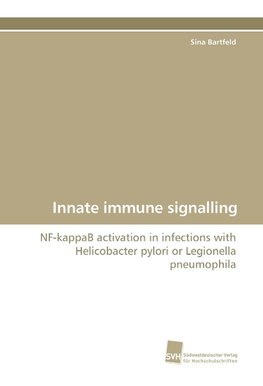
-
 Nemecký jazyk
Nemecký jazyk
Innate immune signalling
Autor: Sina Bartfeld
During infection the human body interacts intimately with the infectious pathogen. It is this interaction that determines disease outcome. Upon infection the protein NF-kappaB acts as a central signal transmitter of the innate immune system. This protein... Viac o knihe
Na objednávku
49.95 €
bežná cena: 55.50 €
O knihe
During infection the human body interacts intimately with the infectious pathogen. It is this interaction that determines disease outcome. Upon infection the protein NF-kappaB acts as a central signal transmitter of the innate immune system. This protein has two main functions: the activation of genes important for inflammation as well as those that secure survival of the cell. This dual role provides a mechanistic link between infections and cancer development, as seen during infection with the carcinogenic bacterium Helicobacter pylori. Bacteria that develop intracellularly, such as Legionella pneumophila, depend on the survival of the host cell and can thus benefit from NF-kappaB activation. But how is NF-kappaB activated in these infections? And how is the activation terminated? The author introduces us to NF-kappaB signalling and then analyses NF-kappaB activation during infections with H. pylori or L. pneumophila. She establishes a new test system for high-throughput screenings and identifies new cellular factors important in NF-kappaB activation and termination. The identification of these factors broadens our understanding of innate immune signalling.
- Vydavateľstvo: Südwestdeutscher Verlag für Hochschulschriften
- Rok vydania: 2009
- Formát: Paperback
- Rozmer: 220 x 150 mm
- Jazyk: Nemecký jazyk
- ISBN: 9783838110745

 Anglický jazyk
Anglický jazyk 










